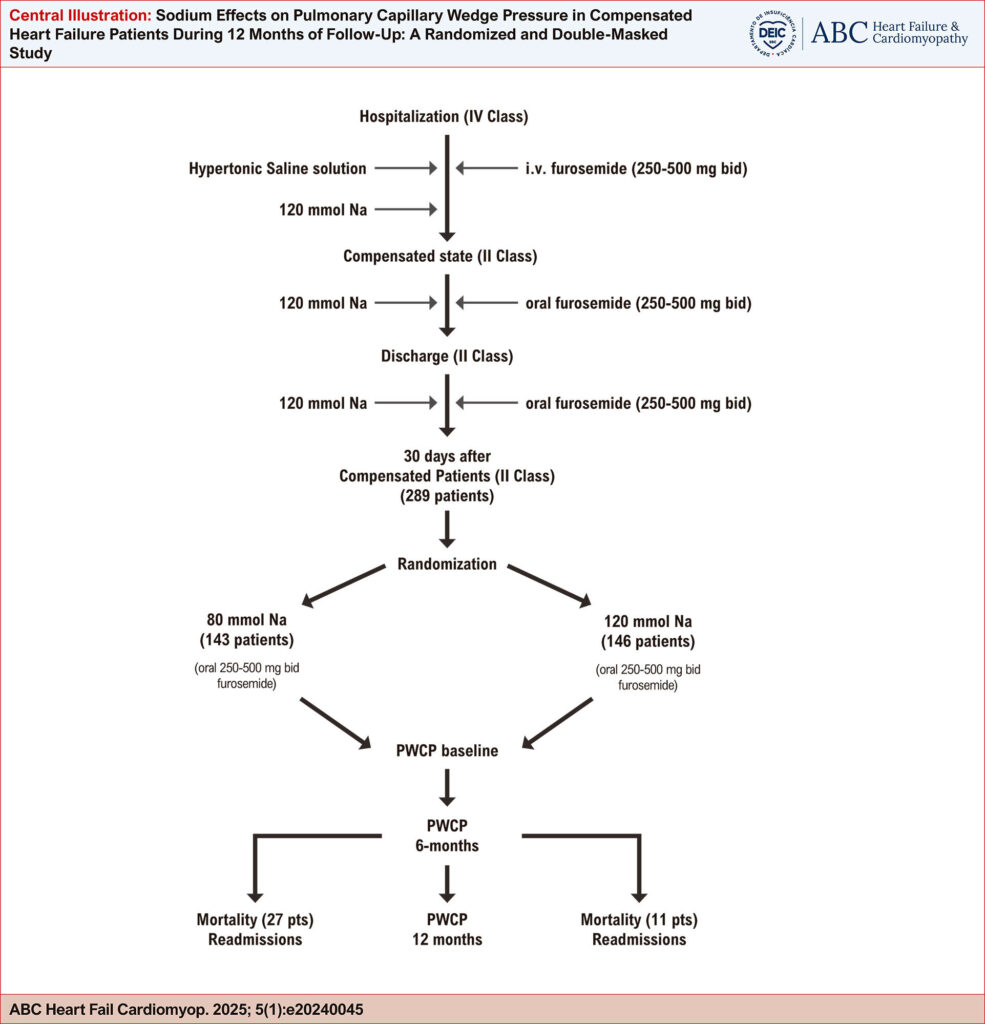ABC Heart Fail Cardiomyop 2025; 5(1): e20240045
Sodium Effects on Pulmonary Capillary Wedge Pressure in Compensated Heart Failure Patients During 12 Months of Follow-Up: A Randomized and Double-Masked Study
Abstract
Background
Few studies compared different sodium (Na) diets associated with high furosemide doses (FHD) and fluid intake restriction (FIR) on the PCWC in compensated heart failure (HF) patients.
Objectives
The study was aimed to verify FHD effects, 120 mmol/Na/day and FIR (1.000 ml day) vs FHD, FIR, and 80 mmol/Na/day on the PCWP, during 12 months of follow-up.
Methods
289 patients with HF were randomized: Group A (n =146) received 120 mmol Na/day, FIR, and 125-250 mg bid of furosemide. Group B (n = 143): 80 mmol Na/day, FIR and 125-250 mg bid of furosemide. Clinical and laboratory assessments were evaluated at baseline, every week for the 1st month, every 2 weeks for the next 2 months, and then every month. Patients performed echocardiograms at entry, at 6 and 12 months.
Result
Group A, during 12 months, maintained diuresis as at baseline, whereas Group B showed a significant reduction, as well as for natriuresis and serum Na; renal function did not show a substantial difference in Group A. PCWP was stable in Group A, whereas it increased in Group B. Readmissions and mortality showed 22 and 11 patients in Group A versus 63 and 27 deaths in Group B (p< 0.001, p <0.004)
Conclusion
Our data suggest that a moderate Na diet combined with FHD and FIR have beneficial effects on the PWCP and clinical outcomes. Readmissions and mortality were considered exploratory variables; in fact, the study was underpowered to analyze the prognosis, and results had to be considered with caution. NCT01738659.
Keywords: Diuretics; Heart Failure; Sodium
365


